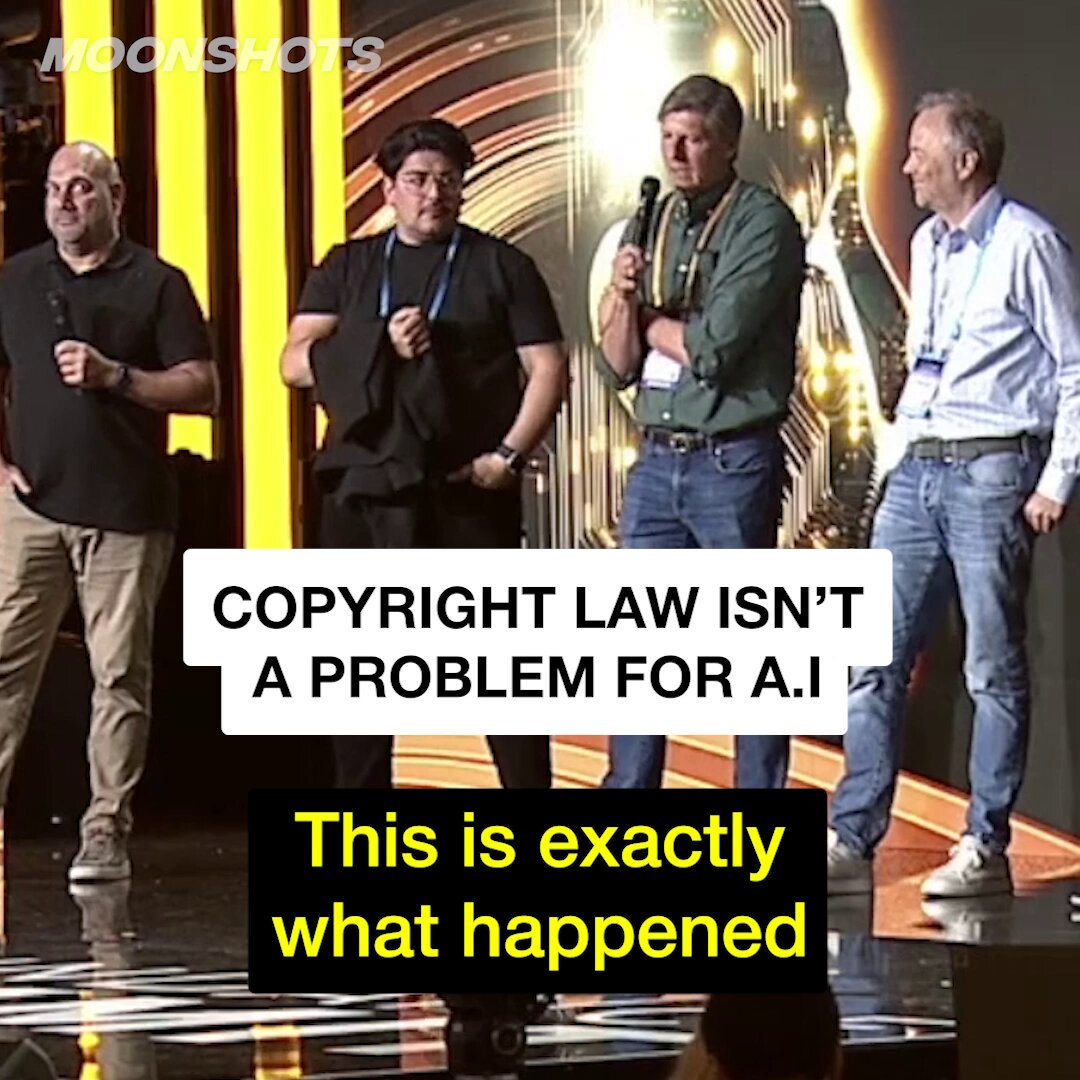The statement 'Copyright Law isn't a problem for A.I.' accompanied by an image of individuals on a stage, appears to address the issue of how artificial intelligence interacts with existing copyright laws. This is a topic of public interest, particularly in the tech and creative industries.
- The statement does not cause harm but oversimplifies a complex issue, potentially misleading the audience about the nuances of copyright law and AI. [-1]Principle 1:I will strive to do no harm with my words and actions.
- The statement respects the dignity of others and does not involve any personal attacks or derogatory content. [+1]Principle 2:I will respect the privacy and dignity of others and will not engage in cyberbullying, harassment, or hate speech.
- The oversimplification might hinder a deeper understanding and empathy towards creators who might be affected by AI in the context of copyright. [-1]Principle 3:I will use my words and actions to promote understanding, empathy, and compassion.
- The statement does not foster constructive dialogue or a balanced discussion on the topic, as it presents a one-sided view. [-1]Principle 4:I will engage in constructive criticism and dialogue with those in disagreement and will not engage in personal attacks or ad hominem arguments.
- The use of the statement in a public discourse setting should ideally aim to educate and inform the audience comprehensively, which it fails to do here. [-1]Principle 6:I will use my influence for the betterment of society.
- The statement does not fully uphold the integrity of responsible communication in public discourse as it lacks depth and balance. [-1]Principle 7:I will uphold the principles of free speech and use my platform responsibly and with integrity.
